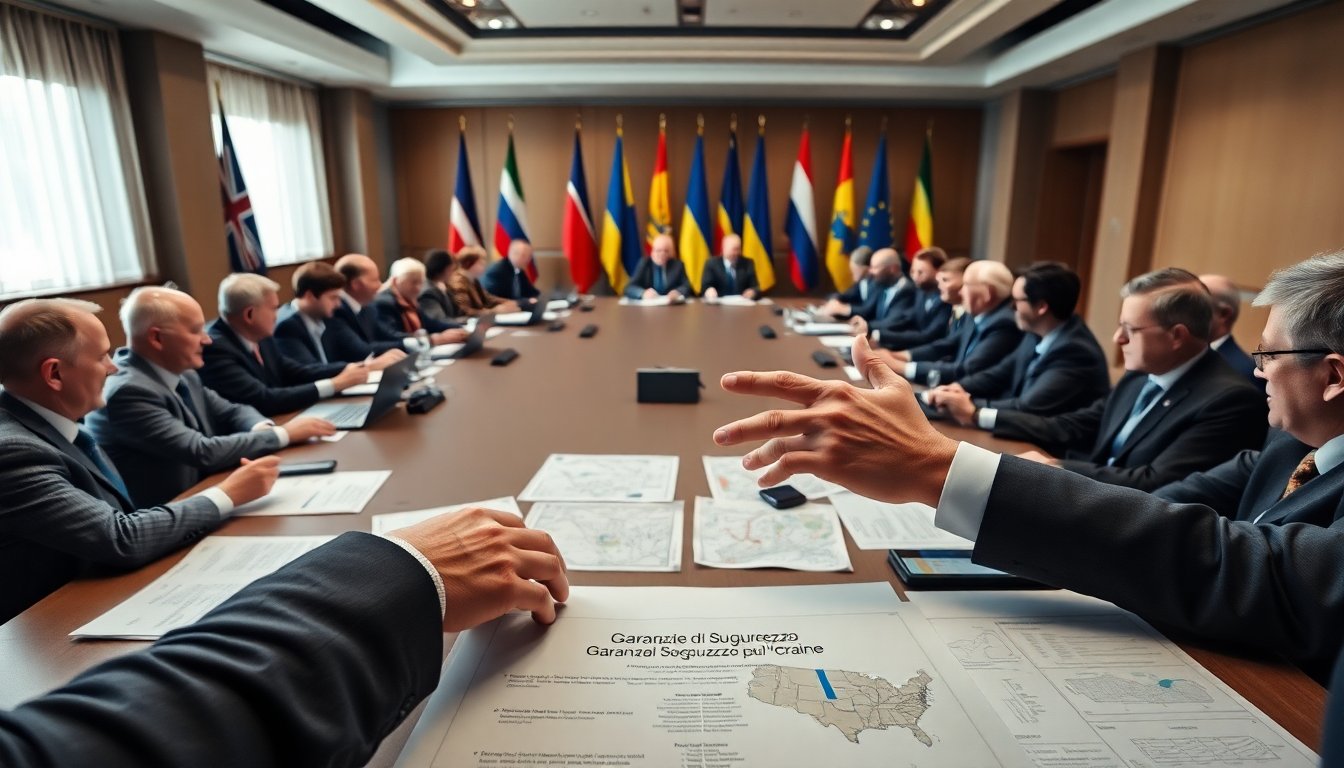Table of Contents
The ongoing conflict in Ukraine continues to capture global attention, influencing diplomatic strategies and security policies across Europe. As the war approaches its 1,288th day, key developments are emerging that could shape the post-war landscape. Recent statements from French President Emmanuel Macron highlight a significant moment in these discussions, indicating readiness among European allies to offer security guarantees to Ukraine.
Macron’s Commitment to Ukraine
On September 4, French President Emmanuel Macron announced crucial details regarding Ukraine’s future security arrangements. He stated that the “preparatory work” for post-war security guarantees has been completed, signaling a proactive stance from European nations. This development is critical, as it suggests that Europe is taking tangible steps to support Ukraine in the aftermath of the conflict.
Macron’s discussions with Ukrainian President Volodymyr Zelenskyy at the Elysee Palace were particularly strategic. These discussions occurred just before a meeting involving leaders from a coalition of nations committed to supporting Ukraine. This coalition, often referred to as the “coalition of the willing,” is pivotal in coordinating international responses aimed at stabilizing Ukraine’s situation and ensuring its sovereignty moving forward.
The emphasis on security guarantees underscores a growing consensus among European leaders regarding the importance of a united front. The readiness to offer guarantees “the day a peace deal is signed” with Russia reflects a thoughtful approach to post-conflict planning. European nations recognize that ensuring Ukraine’s security is essential in preventing future aggressions and fostering regional stability.
European Allies’ Strategic Positioning
As the war continues, the role of European allies becomes increasingly vital. Macron’s assertion that preparatory work is complete indicates that discussions have been ongoing behind the scenes, involving various stakeholders across Europe. The focus on security guarantees aims not only to protect Ukraine but also to strengthen the collective security framework within Europe.
Moreover, the coalition’s approach serves as a deterrent against potential future conflicts. By establishing a clear commitment to Ukraine’s security, European nations signal to Russia that any aggression will be met with a unified response. This strategic positioning is essential for maintaining peace and sovereignty in Eastern Europe.
It is important to note that security guarantees may encompass a range of measures, including military support, economic assistance, and diplomatic backing. The multifaceted nature of these guarantees reflects the complexity of the situation on the ground and the diverse needs of Ukraine as it navigates its future.
Implications for the Future
The developments surrounding Ukraine’s security guarantees will have far-reaching implications for both regional and international politics. As European nations prepare to support Ukraine, the dynamics of power in the region are likely to shift. The potential for a peace deal with Russia remains uncertain, but the commitment to Ukraine’s security illustrates a significant step towards ensuring long-term stability.
Looking ahead, it is crucial for European nations to maintain their resolve and continue fostering alliances that prioritize not only Ukraine’s immediate needs but also its long-term sovereignty. The ongoing discussions and preparations signify a pivotal moment in the geopolitical landscape, where lessons learned from this conflict could shape future international relations.
In conclusion, the commitment from European allies to provide security guarantees to Ukraine is a significant development in the context of the ongoing war. As leaders continue to strategize and collaborate, the hope for a peaceful resolution becomes intertwined with the imperative of ensuring Ukraine’s security in a rapidly changing political environment.


